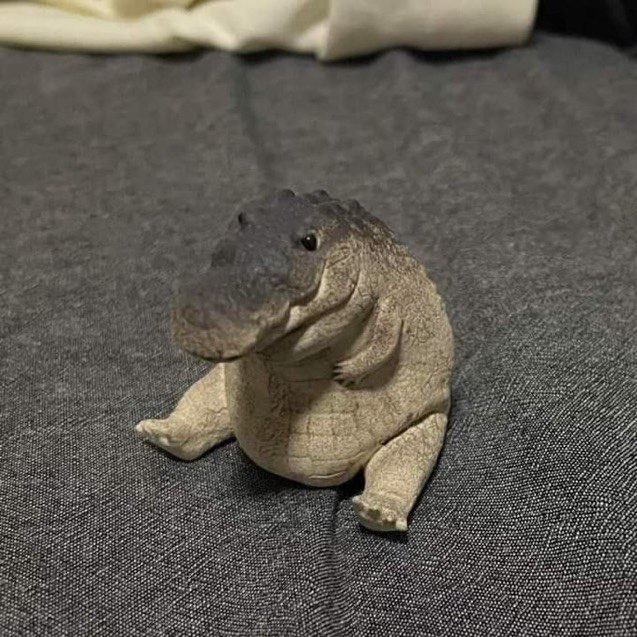I keep all of what happened in one journal, and everything else on the computer. All the maps, the schedules, and the character sheets using a gurps character sheet program (forgot what its called), because I run it through discord using a text format. I hardly plan anything besides what’s in my head.
Ive been trying to use different ways to plan besides just pure vibes. like using joplin, or some wiki format or even trying to do use a mindmap? But alas most of what I do is simulating what I believe would happen and keeping character sheets of possible enemies on hand.
So, I’m curious, what do you do?
I use Onenote, it’s free. Let’s you have a book with folders and pages. You can have blank lines dotted or graph paper. You can use it to search images uploaded to it. Combined with a surface pro to write on the screen I can do everything I want to from draw maps, edit character sheets and take notes. You can hyperlink between pages and print pdf’s into it. Fabulous piece of software for RPGs.
Yup, surface pro 9, stylus and onenote is all I need
Obsidian! Can’t recomment it enough! It’s simple, has everything I need and a shitton of plugins (dice roller, statblocks, Initiative tracker, fantasy calendar, a tool for working with maps with pins and everything, ability to embed all sorts of generators from generators websites, wiki styled notes and more!)
For notes during/right after a session I have a notebook where I write by hand.
For planning, loose ideas etc I used to use Trello. It was serving me well for a long time (I’m still using it to save maps I might want to buy, interesting systems, links to tools, etc) but with time I felt I’m lacking a kind of big picture view.
So for campaign and adventure planning I’ve switched to obsidian.
- I like markdown
- With plugins you can create random generators
- I like that it’s simple. It’s just a bunch of files which I sync to my cloud
- The graph view lets me take a look at arches as a whole and find loose ends/underutilized facts
I use the superior method, a mess of illegible scribblings in a journal. I am trying to get better about it, though. And one thing im really trying to do is focus my prep on what the region is like, and what the important actors there are doing, and not on what i think the players will do. Every time I try to predict the pc actions they completely flip my prep on its head, so I want to go for more of an “informed improv” type prep
I felt the illegible scribblings in a journal because thats what I did when I was first starting to layout the setting. Even my maps look like that. I drew most of it in tuxpaint for that deranged feeling 🫣
I think that planning and keeping in mind what NPCs do through out makes the game feel “alive”. I try to do something like that, though I’m not sure how good I am at it. At most I just make recurring characters appear where they might be when a player enters a building or a setting occasionally
Lol! Yeah, im really trying to work on making the world alive. For my next campaign Im in the worldbuilding and planning phase right now, and Im planning to have the PCs be a mercenary group, who can be hired by various factions. But in between missions Im going to run a faction game with other players, so that the factions naturally evolve and actually hire players for their goals, so that the missions and world feel real. If all goes well anyway, I’m crossing my fingers lol
I hope it goes well 🫡🫡god speed! that sounds really cool lol I’d be too scared to try something like that. I like running smaller scale games
I use obsidian, and git to sync between devices.
Nerd alert! 😝
Poorly! I do it poorly! :D
Characters are in GURPS Character Sheet, an (awesome!) open source character management program. I run our games through Foundry VTT, which handles all the combat tracking, HP/FP management, maps when I have them, etc. It also imports GCS files (and GCA, if that’s your flavor of character editor). Most of my other notes (events, generated people names for unexpected NPCs, etc) go in Google Keep notes. Notes that I have to take on the fly go into my notebook, where they go forgotten until the next session, more often than I’d like…
Haphazard scrawls on a notepad during the session, trying to not lose it in between the initiative orders and scribbled HP tracking from combats. After the session I try to collate it all into a OneNote where it’s all organised by campaign and plot element and theme.
Lately I’ve been moving from OneNote to Obsidian. Obsidian’s ability to link between files and then see the visual map of all the links is handy, and it can even detect mentions of a thing even if you didn’t link it at the time, so if something becomes important enough that you later decide to create an actual page for it, it’ll find all the places you previously mentioned it. Very useful.
I’m a big fan of the Notion template from Sly Flourish. You can find it here: https://slyflourish.com/lazy_dnd_with_notion.html
This has been a lifesaver for me for years now. Just need to add some sections for world building and it’d be even better!
Thank you for the neat website! This looks so cool
Three pieces of paper: Apocalypse World’s the threat map and two threat sheets.
The game is so flexible that I don’t need to plan much.
If I forget something, players will surely remind me, and that’s okay. We’re there to play a fun and interesting interesting game in which we can improvise and course-correct. We can all pitch ways in which to integrate the forgotten-and-later-remembered fact to our current game. In that way, it’s a much more collaborative and free game.
We are not playing a game in which I am playing against my friends and so we all have to keep track of everything, just in case we need to rule-lawyer each other.
Neither are we there to play a game in which the lore is completely separated from the actions that the players take.
In Apocalypse World (at least the way my friends and I play it), the lore is created as we play, based on the actions that players take. This means that nobody is sitting for hours coming up ideas. Rather, we are playing a game and seeing the world ‘render’ before our eyes with every decision the players take. Sure, I also take decisions, but the vast majority of them are taken in real time, before my players’ eyes. We’re all there to see what happens, because nobody (not even I, the GM) knows what will happen!
Oh, and if we all forget something, it doesn’t matter; we’re all still gonna have a blast!
MS OneNote is my preferred tool for this as you habe an infinite notebook and can doodle anywhere on its infinite pages. I usually have a chapter for rules, NPCs, Fluff (locations and past events), PCs (their history and plot hooks), with pages for e.g. combat rules, 1 page per NPCharacter etc. You can import pictures (and also paste them directly from ON to Discord) and share the notebook (or single pages) with others online.
I used to keep text files on my computer, I got into a rabbit hole creating a bot to roll dice, store characters and also notes, and eventually I found Notion, I started to use it and so far it’s been great, I haven’t kept too many notes, but I’m organizing a Monster of the Week world and it’s been great for creating monsters and planning sessions that link with the monsters so I have all of the info available easily.
Between sessions: Google Docs (one document per campaign)
During the session: I’ll print out the document and scribble on it with a pen as needed. I’ve tried editing the doc live (via laptop) during the game but it takes too long and requires too much focus to type as opposed to just jotting down/crossing out as we play.
Paper in a folder with index sheets. Old school as hell.
I tried Obsidian recently for a homebrew game and it worked really well too however. So I might use that more going forward.
@jursed I use Google Docs for just about everything. That way, I can call them up on any of my devices whenever I need them.
Obsidian is a personal favorite.







